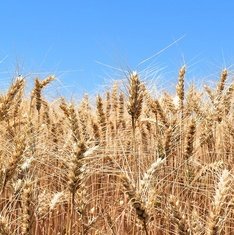Featured Quizzes
User Quizzes
Create Quiz
Data and Charts
Badges and Games
About JetPunk
JetPunk Shop
Dark Mode

World's Most Grown Crops
Try to name the world's 50 most grown crops based on the total weight produced.
For the year 2022. Source: FAOSTAT.
Rate:
Featured Quiz
Last updated: January 29, 2024
You have not attempted this quiz yet.
More quiz info >>
| First submitted | May 27, 2014 |
| Times taken | 108,370 |
| Average score | 50.0% |
| Rating | 4.67 |
8:00
Enter answer here
0
/ 50 guessed
Time Used
00:00
Best Time
00:00
The quiz is paused. You have remaining.
Scoring
You scored / = %
This beats or equals
% of test takers
also scored 100%
The average score is
Your high score is
Your fastest time is
Keep scrolling down for answers and more stats ...
|
|
|
New and Popular
Save Your Progress
Copyright H Brothers Inc, 2008–2024
Contact Us | Go To Top | View Mobile Site

I got several of the others by remembering what the most common food allergies are to.
I was surprised not to see cacao, coffee or smokable plants
Grapefruit, which i belive is around 85 mtons, and Coffee Plants
Coffee should definitely be in there
In South Korea, it is a common belief that people can die if they sleep in a closed room with an electric fan running.
Have you ever slept in a closed room with an electric fan running?
Also, why are melons and watermelons separate? I guessed melon and didn't think to also write watermelon since it was already encapsulated by "melon"
It seems a little bit random to me, what is grouped together and what not...
I could sort of understand if this was only counting crops for "human consumption", but the significant majority of corn grown is used for animal feed (or biofuel), same as alfalfa. I just can't see a reason why it wouldn't be on the list.